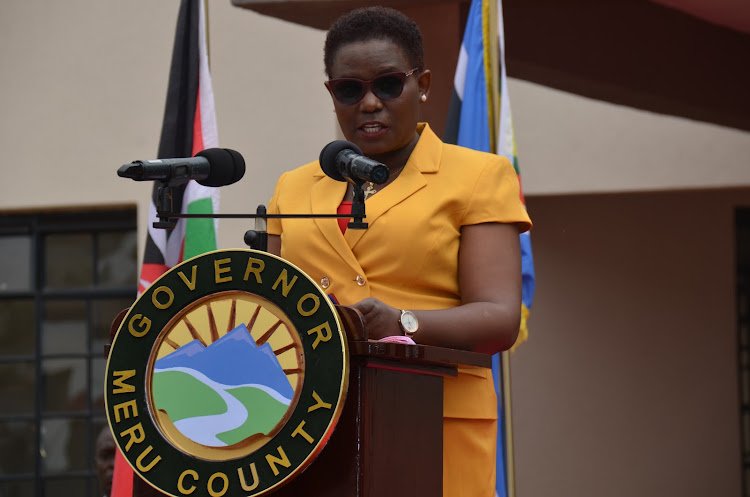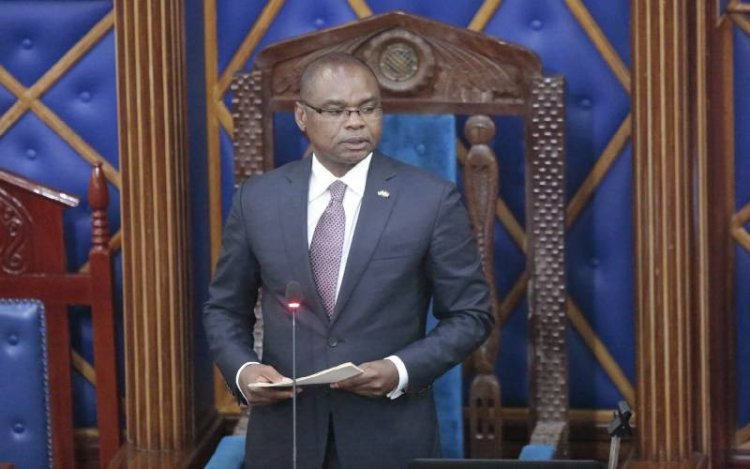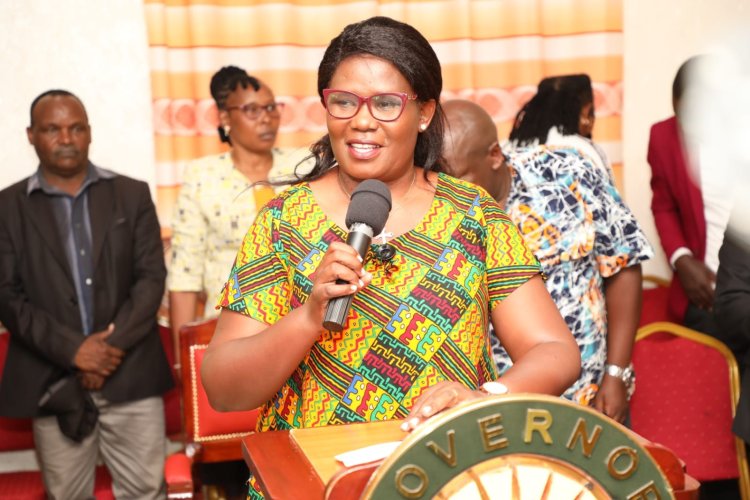List Of 11-Member Senate Committee To Decide On Mwangaza's Impeachment
The committee will then submit their recommendations in 10 days’ time following investigations...

The Senate has resolved to form an 11-member committee to investigate Meru Governor Kawira Mwangaza following her impeachment by the Meru County Assembly on Wednesday, December 14.
In a notice on Tuesday, December 20, the resolution came after the Office of the Speaker of the Senate received a letter from the Meru County Speaker Ayub Bundi notifying Speaker Amason Kingi of Mwangaza's impeachment that came after all 67 Members of the County Assembly (MCA) approved her ouster through a vote.
"And whereas pursuant to Section 33(3)(b) of the County Governments Act and Standing Order 80 (1)(b), the Senate by resolution may appoint a special committee comprising eleven of its members to investigate the matter.

Senate speaker Amason Kingi during his maiden speech on September 8, 2022. /STANDARD DIGITAL
"Now, therefore, pursuant to Section 33(3)(b) of the County Governments Act and Standing Order 80 (1)(b), the senate resolves to establish a special committee," the notice read.
The special committee consists of the following members:
- Senator (Dr.) Boni Khalwale (Kakamega)
- Senator Jackson Mandago (Uasin Gishu)
- Senator Karungo Thangwa (Kiambu)
- Senator Esther Okenyuri (nominated)
- Senator Roba Ali Ibrahim (Mandera)
- Senator Peris Tobiko (nominated)
- Senator Eddy Gicheru Oketch (Migori)
- Senator Joseph Githuku Kamau (Lamu)
- Senator Edwin Sifuna (Nairobi)
- Senator Agnes Kavindu (Machakos)
- Senator Johnes Mwaruma (Taita Taveta)
The committee will then submit their recommendations in 10 days’ time following the investigations on whether or not it finds the particulars of the allegations against Governor Mwangaza to have been substantiated. The House will then vote on whether or not to uphold her impeachment.
As enshrined in the 2018 Impeachment Bill, the Senate, by resolution, may appoint a special committee comprising 11 Senators to investigate the matter and report to the House within ten days on whether it finds the allegations against Mwangaza to have been substantiated.
If the Senate chooses to consider the impeachment motion as a House, a determination within ten days of its first meeting is made.
Within two days of the meeting, the Clerk of the Senate will invite Mwangaza to appear before the House. She will also be allowed the chance to defend herself throughout the investigations.
Should the Senate defeat the impeachment motion, it shall not be reintroduced on similar grounds, until after three months. However, should it uphold the motion, Mwangaza shall cease to hold office and Speaker Kingi shall notify the Meru County Assembly Speaker accordingly.
If a vacancy occurs, according to Section 182 of the Constitution, the deputy governor shall assume office for the remainder of Mwangaza's term.
The second impeachment motion against her came days after the Meru High Court suspended the first impeachment motion filed against her. Justice Wamae Cherere ruled on Wednesday, November 30 that the County Assembly did not follow the proper procedure in initiating the motion.
The motion was tabled by the leader of the Minority Dennis Kiogora who presented video clips among other pieces of evidence to back his accusations against the Governor.
She is accused of nepotism, illegal appointments, unlawful dismissals, usurpation of constitutional and statutory functions, incitement, bullying, vilification and misleading campaigns against other leaders.
Other accusations are forceful entry into the assembly and mobilizing unlawful riots against MCAs, violation of public finance management laws and misconduct relating to the nomination of CECs.







